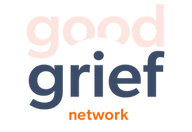Frequently Asked Questions
Good Grief Network helps individuals and communities build resilience by creating spaces where people can lean into their painful feelings about the state of the world and reorient their lives toward meaningful action.
What is Good Grief Network?
What are the 10-Steps?
What is eco-grief or eco-anxiety?
Does GGN help people who are grieving a personal loss?
Good Grief Network helps people who feel eco-anxiety and other forms of eco-distress about the state of the world; our support groups do not focus on processsing the acute grief that results from a personal loss.
If you’ve found our page while searching for support in grieving the loss of a loved one, we are so sorry to hear that you are struggling. Each member of our team has experienced devastating loss, and we remember how painful this stage of processing can feel.
Are GGN's facilitators therapists?
When is your next 10-Step program?
You can also visit our affiliate 10-Step page to see if there’s an affiliate program happening near you.
Do you run 10-Step programs for kids?
What other programs does GGN offer?
In addition to our 10-Step Program, Good Grief Network offers a journaling program, teen resilience program, book club, and drop-in vigils, circles, and other events.
Visit our program page or event page to see what’s coming up!
How can I support your work?
Glossary of Terms
A NOTE OF THANKS: We think it can sometimes feel challenging to embrace new terminology, and want to thank you for being open to exploring new ways of communicating. We believe that language can be used as a weapon or a bridge, and as an organization, we strive to use clear and inclusive language that recognizes cultural differences, fosters connection, and creates openings in conversation.
We recognize that the terms we use won’t be clear to people who have never heard them before. For that reason, we’ve put together this Glossary of Terms to help explain what we mean when we use certain terms in our materials. This glossary is an evolving and collaborative work in progress and is not perfect. Please bear with us as we, too, examine the nuances of language and learn to communicate in new ways.
TheDecolonial: A theoretical framework that is interested in deconstructing/undoing/de-linking Eurocentric ways of understanding the world. (Definition borrowed from Aphro-ism: Essays on Pop Culture, Feminism, and Black Veganism from Two Sisters, with much respect and gratitude to Aph Ko and Syl Ko.)
Decolonize: The practice of deconstructing Eurocentric ways of understanding the world and de-linking those ways of understanding from our behaviors. (Definition borrowed from Aphro-ism: Essays on Pop Culture, Feminism, and Black Veganism from Two Sisters, with much respect and gratitude to Aph Ko and Syl Ko.)
Dominant Paradigm: The monolithic and homogenized culture prevalent in the Western world, characterized by capitalism (more specifically neoliberalism), patriarchy, racism, and other systems of oppression.
Ecological Anxiety (also called Eco-Anxiety or Climate Anxiety): The chronic fear of environmental doom.
Ecological Grief (also called Eco-Grief or Climate Grief): The feeling of emotional and psychological loss suffered as a result of losses in the natural world.
Emotional Processing: The process by which we identify, recognize, name, and engage with extreme feelings, in order to gradually reduce the amount of emotional reactivity that occurs in response to the thoughts and events that gave rise to such feelings.
Heart-Centered: A state of being in which we prioritize information and make decisions based on compassion, insight and body wisdom, rather than from exclusively rational and egocentric motivations.
Heart-Centered Revolution: A revolution where we open to the innate wisdom that has been buried and covered up by the dominant paradigm. As we open to our interconnectedness to all beings and the natural world, we make decisions based on compassion and insight rather than from egocentric motivations. Instead of thoughtless and selfish actions, we reinvest ourselves with an understanding of the consequences to the larger world. The heart-centered revolution is brought about by our inner equanimity and from our Love for each other, the natural world, and ourselves.
Predicament: The interlinked set of problems that have amassed such complexity they can no longer be solved. Moving forward, we establish relationships with a predicament instead of solving it.
